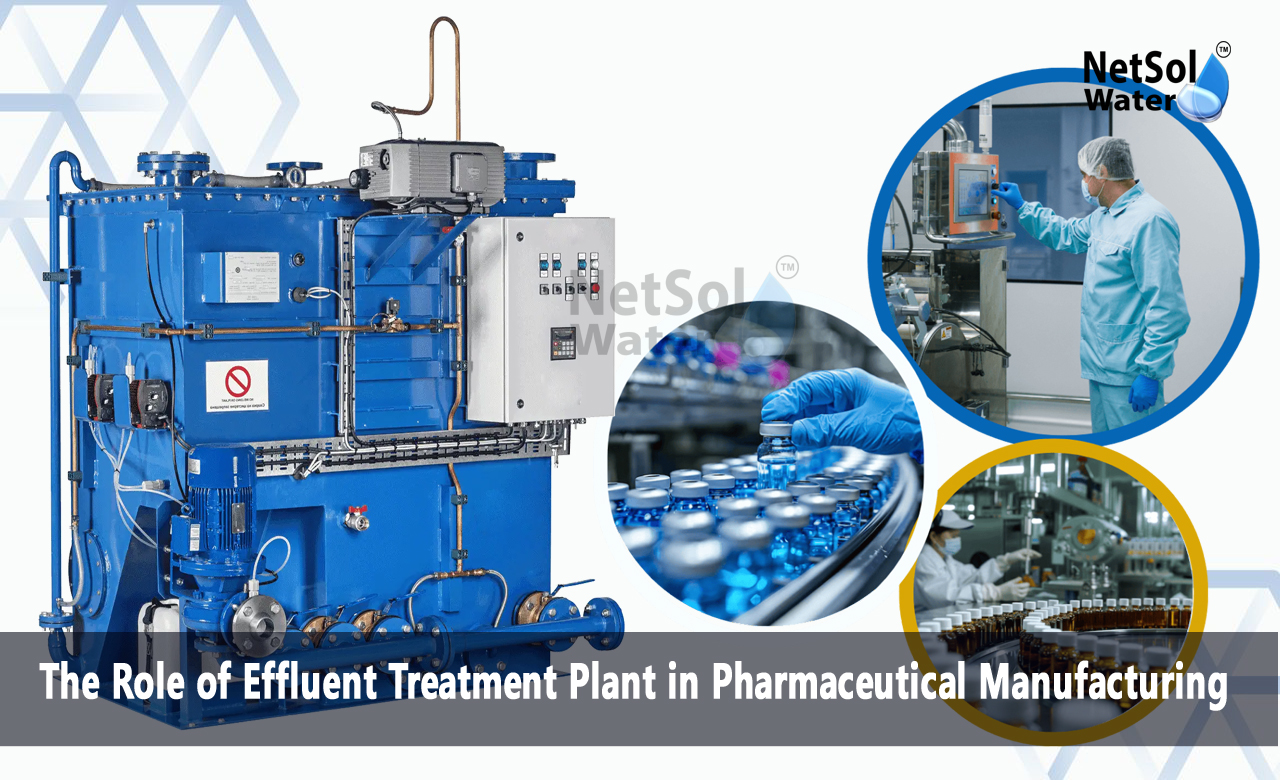What is the Role of ETPs in Pharmaceutical Manufacturing?
Effluent Treatment Plant transform pharmaceutical manufacturing by safeguarding environmental standards and managing waste effectively. These systems actively convert industrial wastewater into environmentally safe water. Pharmaceutical manufacturing creates diverse wastewater streams throughout production processes. Active pharmaceutical ingredients, chemical residues and other compounds demand thorough treatment before environmental release.
Pharmaceutical companies produce medications to enhance human health worldwide. Their manufacturing processes generate wastewater streams that require expert management. Effluent Treatment Plant employ multiple treatment stages to purify this wastewater. These advanced processes eliminate harmful substances and maintain environmental compliance. Environmental agencies establish discharge standards that must be met by treated water. Pharmaceutical manufacturers now embrace sustainable practices as a core business strategy. ETPs stand at the centre of these sustainability initiatives. These advanced systems minimize environmental impact while maximizing production efficiency. ETP operations create harmony between environmental protection and regulatory requirements. This equilibrium empowers pharmaceutical companies to advance healthcare while protecting our environment.
Treatment Process Fundamentals
Pharmaceutical wastewater undergoes multiple treatment phases to achieve purification standards. Each phase targets and eliminates specific contaminants to enhance water quality. Process optimization demands deep understanding of these treatment methods to deliver consistent results.
Primary Treatment: The primary phase actively filters larger particles and suspended solids from incoming wastewater. Physical separation methods drive this initial cleaning stage. Advanced screening systems capture debris while specialized sedimentation tanks facilitate particle settlement. A dedicated disposal system processes the collected solids. This foundational step enables subsequent advanced treatment processes.
Secondary Treatment: The secondary phase actively breaks down biological contaminants present in wastewater. Specialized bacteria populations eliminate organic compounds during this stage. These microorganisms transform pollutants into environmentally safe substances. Advanced aeration systems push oxygen to sustain bacterial populations. This biological process significantly enhances water purity and decreases organic contamination.
Advanced Treatment Methods: The advanced phase targets pharmaceutical compounds that survive earlier treatment stages. This stage combines chemical oxidation membrane filtration and activated carbon processing. These sophisticated methods eliminate persistent compounds to achieve thorough purification. Multiple treatment combinations ensure water quality exceeds regulatory standards.
Environmental Impact and Regulatory Compliance
ETPs actively protect environmental resources while ensuring pharmaceutical companies meet legal obligations. These systems prevent contamination and build strong regulatory relationships. Proper operations enhance business sustainability and environmental preservation.
Pollution Prevention: ETPs actively block harmful substances from contaminating natural water sources. These systems protect aquatic life and preserve groundwater quality. Advanced treatment processes eliminate dangerous compounds before discharge. This prevention strategy maintains ecological balance and supports biodiversity.
Meeting Discharge Standards: Environmental regulations mandate specific wastewater discharge limits. ETPs enable pharmaceutical companies to exceed these requirements consistently. Advanced monitoring systems track compliance with all standards. This proactive approach prevents penalties and maintains operational licenses.
Environmental Monitoring: Continuous testing validates treatment effectiveness and environmental protection measures. Water quality assessments evaluate multiple parameters throughout the process. This monitoring strategy optimizes system performance and identifies issues early. Collected data drives continuous treatment process improvements.
Operational Optimization and Efficiency
Efficient ETP operations enhance pharmaceutical manufacturing success. Strategic management reduces operational costs while maintaining treatment quality. These approaches help companies achieve environmental goals cost-effectively.
Energy Management: ETPs consume substantial energy during operations. Strategic energy management decreases operational expenses. Advanced equipment and control systems maximize energy efficiency. These improvements deliver environmental and financial benefits simultaneously.
Chemical Usage Optimization: Treatment processes demand specific chemical combinations. Strategic chemical management ensures treatment success while minimizing costs. Continuous monitoring optimizes chemical dosing systems. This approach enhances treatment outcomes and eliminates waste.
Maintenance Practices: Proactive maintenance ensures continuous ETP operations. Strategic maintenance prevents equipment failures and minimizes repairs. Well-maintained systems deliver superior performance and extended life spans. These practices protect equipment investments and guarantee treatment quality.
Enhance Your Pharmaceutical Manufacturing with Advanced ETP Solutions
Your pharmaceutical facility deserves excellence in effluent treatment. Our team delivers comprehensive ETP solutions designed for pharmaceutical applications. We optimize treatment systems to exceed environmental standards. Connect with us to explore your effluent treatment requirements and discover how our expertise enhances your operations.
Contact Netsol Water at:
Phone: +91-965-060-8473, Email: enquiry@netsolwater.com



